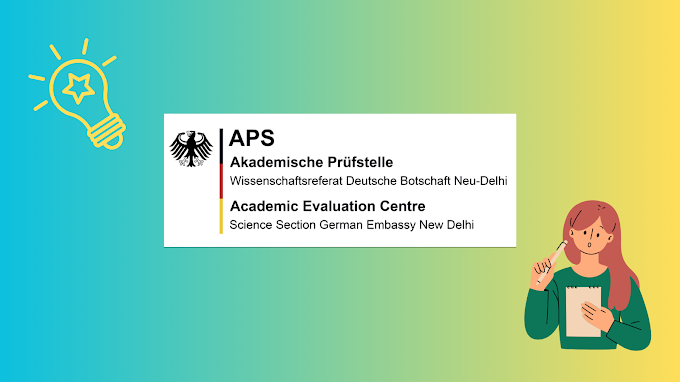Welcome aboard, fellow Grad Voyager!
Welcome, fellow Gradvoyagers, to Germany - a land of academic excellence and exciting opportunities! As you embark on your Master's journey, let's find the perfect university that matches your passions and dreams. This easy-to-understand guide will help you navigate the ranking landscape and choose between public and private institutions, ensuring you sail in the right direction.
Shall we set sail? Let's get started!
Knowing Your Program:
Before setting sail, it's essential to have a clear vision of your academic and career goals. Identify the field of study that aligns with your passions and interests. Whether you're enthusiastic about engineering, art, finance, or any other discipline, choosing a program that resonates with you is vital.
Researching German Universities:
In your quest for the ideal Master's program, it's crucial to conduct thorough research. While rankings can provide insights, remember that they are not the sole determinant of the best fit for you. Instead, focus on program-specific rankings to identify institutions renowned for your field of interest.
Public vs. Private Universities:
Germany's higher education landscape offers a bounty of options, with both public and private universities to choose from. Each type of institution has its unique characteristics, and understanding their differences will aid you in making the best decision for your academic journey.
Public universities offer tuition-free or affordable education with extensive program choices and robust research opportunities. On the other hand, private universities may have higher tuition fees but boast unique and specialized programs, often with smaller class sizes.
Key Resources for Research:
- DAAD Website: The German Academic Exchange Service (DAAD) website is a treasure trove of information for international students. Here, you can discover comprehensive details about various Master's programs, scholarship opportunities, and living in Germany.
- YouTube Channels: Dive into the world of vlogs, student experiences, and university insights through YouTube channels. Many students share their journeys, offering valuable glimpses into academic life, cultural experiences, and university facilities.
- University Websites: Delve into the official websites of the universities you're interested in. Here, you'll find essential program details, faculty profiles, research opportunities, and admission requirements.
- LinkedIn and Social Media: Connect with current students and alumni on LinkedIn or other social media platforms. They can provide firsthand experiences and valuable insights to help you make the right choice.
Tip: To stay on course throughout the application process, create an easy-to-use Excel sheet. Note each university's name, application deadline, application link, and whether you need to apply through Uniassist or directly to the university. This will help you stay organized and ensure you don't miss any critical details.
Setting Sail with Applications:
Prepare to submit your applications with some of the common documents typically required:
- Statement of Purpose (SOP): In your SOP, emphasize your academic journey, career aspirations, and reasons for choosing Germany as your destination for further studies. Mention specific details about the university, program, and faculty that attract you to their institution. Show your passion, drive, and dedication to your chosen field.
- Letters of Recommendation (minimum 2)
- Transcript
- Degree Certificate (or alternative if in the last semester)
- Curriculum Vitae (CV) using Europass format
- Language Proficiency Report (IELTS/TOEFL)
- APS Certificate (For more info on APS CLICK HERE.)
There are two ways in which universities accept applications:
- Direct Application through University Website: Apply directly on the university's official website, following their guidelines for submission.
- Application through Uniassist: Use Uniassist for a centralized application process, especially when applying to multiple universities that require it for international applicants. Uniassist streamlines the application process and ensures your documents are forwarded to the respective universities.
Be sure to visit the application page of each university you are interested in to determine which method they use and follow the appropriate procedure accordingly.
Once your applications are ready, remember the golden rule of successful voyages: apply early. Admissions processing can take time, so submit your applications well before the deadlines to avoid any last-minute hurdles.
Pro Tip:
- Start the application process at least 1 year in advance to allow ample time for preparing documents and meeting deadlines.
- Take the IELTS/TOEFL exam early to ensure your language proficiency report is ready.
- If you are in your 8th semester, right after you get your results, apply for a provisional degree or course completion certificate, which will be needed for the APS certificate.
As you embark on this exhilarating Master's adventure, keep your passions and aspirations as your guiding stars. Remember that university rankings are just one factor, and the most important compass is your own sense of purpose. With this guide, you're well-equipped to navigate the seas of German universities, discovering the perfect harbour to launch your academic journey.
May your Master's experience in Germany be filled with growth, cultural enrichment, and unforgettable memories as you embark on this transformative voyage.
For more comprehensive information on pursuing a Master's in Germany, CLICK HERE
Keep exploring, GradVoyagers. The journey awaits!






2 Comments
excellent piece of information.
ReplyDeleteThank you so much for your kind words! I really appreciate your positive feedback.
Delete